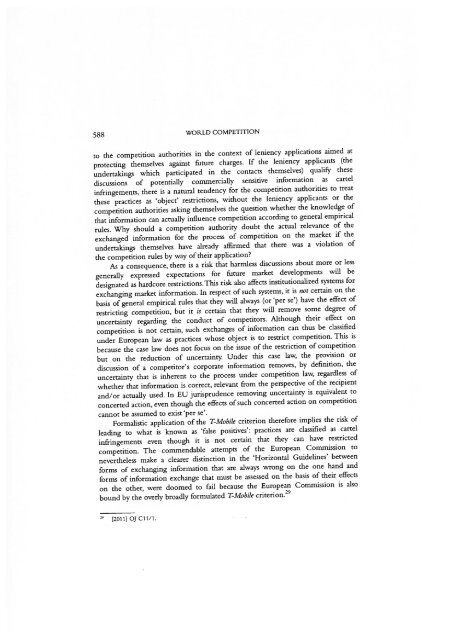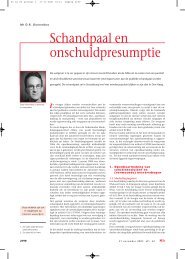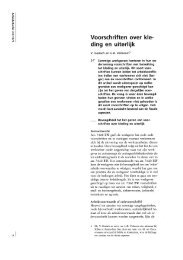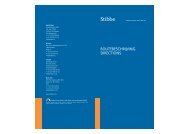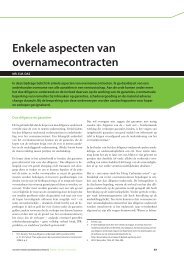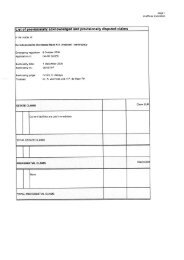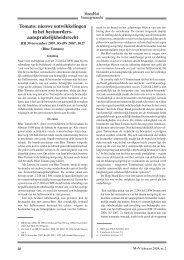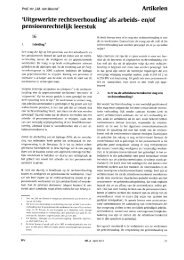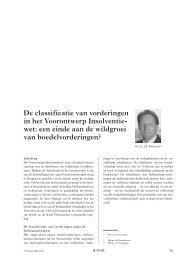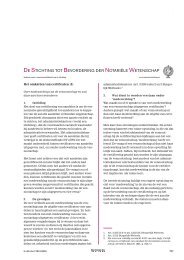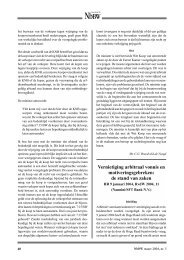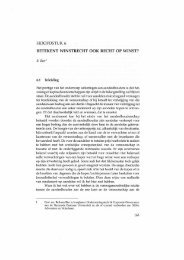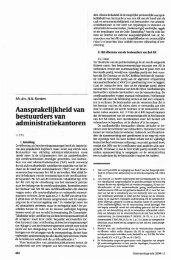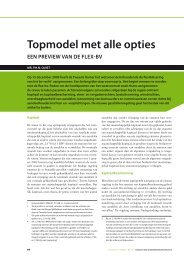The Lawfulness and Acceptability of Enforcement of ... - Stibbe
The Lawfulness and Acceptability of Enforcement of ... - Stibbe
The Lawfulness and Acceptability of Enforcement of ... - Stibbe
You also want an ePaper? Increase the reach of your titles
YUMPU automatically turns print PDFs into web optimized ePapers that Google loves.
29<br />
discussions <strong>of</strong> potentially comniercially sensitive information as cartel<br />
undertakings which participated in the contacts themselves) qualify these<br />
protecting themselves against future charges. If the leniency applicants (the<br />
to the competition authorities in the context <strong>of</strong> leniency applications aimed at<br />
588 WORLD COMPETITION<br />
these practices as ‘object’ restrictions, without the leniency applicants or the<br />
infringements, there is a natural tendency for the competition authorities to treat<br />
competition authorities asking themselves the question whether the knowledge <strong>of</strong><br />
rules. Why should a competition authority doubt the actual relevance <strong>of</strong> the<br />
that information can actually influence competition according to general empirical<br />
exchanged information for the process <strong>of</strong> competition on the market if the<br />
competition is not certain, such exchanges <strong>of</strong> information can thus be classified<br />
under European law as practices whose object is to restrict competition. This is<br />
the competition rules by way <strong>of</strong> their application?<br />
undertakings themselves have already affirmed that there was a violation <strong>of</strong><br />
generally expressed expectations for future market developments will be<br />
designated as hardcore restrictions. This risk also affects institutionalized systems for<br />
basis <strong>of</strong> general empirical rules that they will always (or ‘per se’) have the effect <strong>of</strong><br />
exchanging market information. In respect <strong>of</strong> such systems, it is not certain on the<br />
restricting competition, but it is certain that they will remove some degree <strong>of</strong><br />
uncertainty regarding the conduct <strong>of</strong> competitors. Although their effect on<br />
because the case law does not focus on the issue <strong>of</strong> the restriction <strong>of</strong> competition<br />
but on the reduction <strong>of</strong> uncertainty. Under this case law, the provision or<br />
discussion <strong>of</strong> a competitor’s corporate information removes, by definition, the<br />
uncertainty that is inherent to the process under competition law regardless <strong>of</strong><br />
<strong>and</strong>/or actually used. In EU jurisprudence removing uncertainty is equivalent to<br />
whether that information is correct, relevant from the perspective <strong>of</strong> the recipient<br />
concerted action, even though the effects <strong>of</strong> such concerted action on competition<br />
leading to what is known as ‘false positives’: practices are classified as cartel<br />
cannot be assumed to exist ‘per se’.<br />
infringements even though it is not certain that they can have restricted<br />
nevertheless make a clearer distinction in the ‘Horizontal Guidelines’ between<br />
competition. <strong>The</strong> commendable attempts <strong>of</strong> the European Commission to<br />
forms <strong>of</strong> information exchange that must be assessed on the basis <strong>of</strong> their effects<br />
forms <strong>of</strong> exchanging information that are always wrong on the one h<strong>and</strong> <strong>and</strong><br />
bound by the overly broadly formulated T-Mobile criterion.<br />
on the other, were doomed to fail because the European Commission is also<br />
As a consequence, there is a risk that harmless discussions about more or less<br />
[20111 OJ Cu/i.<br />
Formalistic application <strong>of</strong> the T-Mobile criterion therefore implies the risk <strong>of</strong><br />
29


